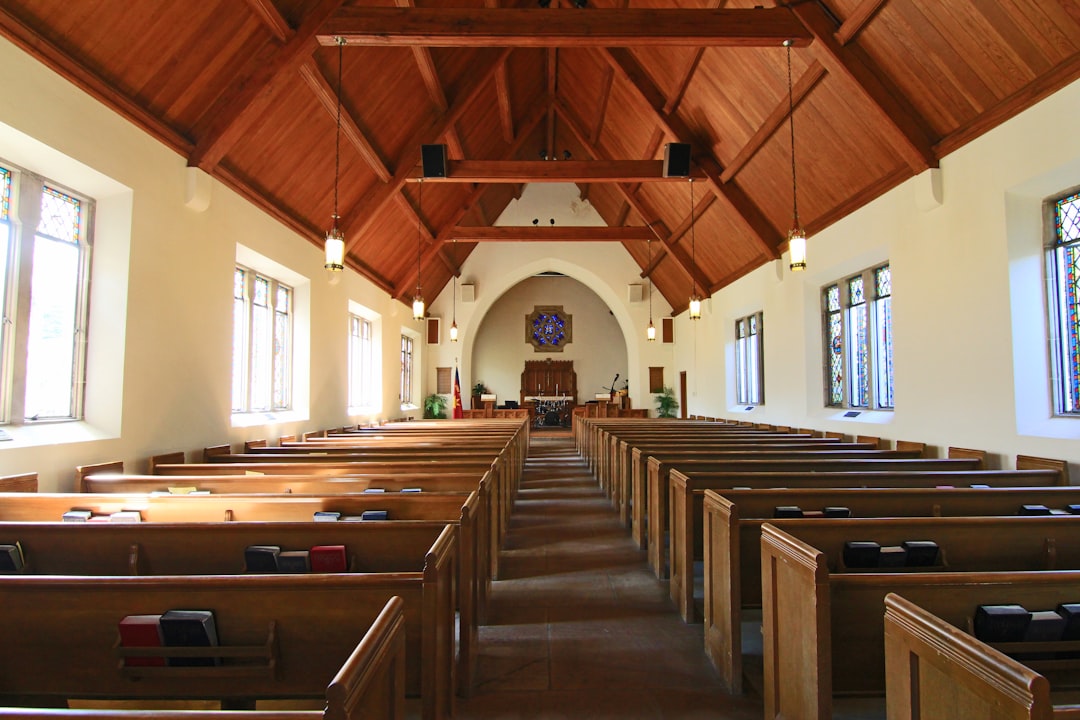In Pennsylvania, where clergy sexual abuse is taken seriously due to strict laws protecting victims in religious institutions, a skilled clergy abuse lawyer offers crucial guidance. Survivors have legal rights, including filing civil lawsuits and seeking compensation for damages. A lawyer assists in navigating evidence gathering, complaints, investigations, and holding abusers accountable. The state's legal framework, evolved through advocacy and lawsuits, promotes transparency and justice. Free or low-cost support services, along with a qualified clergy abuse lawyer, help survivors secure fair compensation.
In Pennsylvania, the issue of clergy sexual abuse has garnered significant attention, prompting a need for understanding and compensation. This article explores crucial aspects of seeking justice for victims through an in-depth look at Pennsylvania’s clergy abuse laws, their legal rights, and the process of filing lawsuits against abusive clergymen. We also delve into the historical perspective, highlighting the state’s evolution on clergy abuse claims, and offer resources for survivors seeking support and compensation as they navigate this challenging journey with the help of a clergy abuse lawyer in Pennsylvania.
Understanding Clergy Abuse Law in Pennsylvania

In Pennsylvania, clergy sexual abuse is taken extremely seriously due to specific laws designed to protect individuals from such exploitation within religious institutions. If you or someone you know has experienced sexual abuse by a member of the clergy, understanding your legal rights under these laws is crucial. A clergy abuse lawyer in Pennsylvania can provide guidance tailored to these unique legal frameworks.
The state’s statutes offer a clear framework for addressing and compensating victims of clergy abuse. These laws not only mandate reporting of such incidents but also establish procedures for investigations and potential legal actions. Victims have the right to seek compensation for their suffering, which may include financial damages for medical expenses, counseling, and other related costs associated with the abuse. A skilled lawyer can help navigate this complex process, ensuring that victims receive the support and justice they deserve.
Legal Rights of Victims: A Comprehensive Guide

In Pennsylvania, victims of clergy sexual abuse have specific legal rights and options available to them. The first step for any survivor is to understand their rights and seek guidance from a qualified clergy abuse lawyer in Pennsylvania. These attorneys specialize in helping clients navigate complex legal issues related to sexual misconduct by religious figures.
A comprehensive guide to these rights would include the ability to file civil lawsuits against the abuser, the church or religious organization that employed them, and potentially seek compensation for physical and emotional injuries incurred. Additionally, victims may be eligible for support services, counseling, and other forms of relief through various state and local programs designed to help survivors of sexual abuse.
The Process: Filing a Lawsuit Against Abusing Clergymen

When faced with the trauma and aftermath of clergy sexual abuse, taking legal action can be a crucial step in seeking justice and accountability. In Pennsylvania, individuals who have suffered such violations have the right to file a lawsuit against their abusers, including clergymen. The process begins by consulting a skilled clergy abuse lawyer in Pennsylvania who specializes in these cases. This legal professional will guide you through the intricate steps required to build a strong case, ensuring your rights are protected throughout.
They will help you gather evidence, which may include medical records, testimony from witnesses or other survivors, and any relevant documents or communications related to the abuse. Once prepared, they’ll file a complaint with the appropriate court, initiating the legal process. From there, the focus shifts to thorough investigations, expert witness preparation, and eventually, negotiations or a trial to secure compensation for the harm inflicted.
Historical Perspective: PA's Evolution on Clergy Abuse Claims

In Pennsylvania, the handling of clergy sexual abuse claims has evolved significantly over time. Historically, such cases were often dismissed or swept under the rug due to the perceived sanctity and authority of religious institutions. However, starting in the late 20th century, a wave of legal actions and public scrutiny began to change this narrative. This shift was fueled by increased awareness and advocacy for victims, leading to landmark lawsuits and settlements that brought much-needed attention to the issue.
Pennsylvania’s legal landscape regarding clergy abuse has since been shaped by these historical developments. The state has enacted laws to improve transparency and accountability within religious organizations, empowering survivors to seek justice. A clergy abuse lawyer in Pennsylvania plays a crucial role in navigating this complex legal environment, ensuring that victims receive the compensation they deserve and that institutions are held accountable for their actions.
Resources for Survivors: Support and Compensation Seekers

For survivors of clergy sexual abuse in Pennsylvania, there are dedicated resources and support systems available. Many organizations offer counseling services, legal aid, and advocacy to help individuals navigate their unique challenges. A crucial step is connecting with a skilled clergy abuse lawyer in Pennsylvania who can guide them through legal options and ensure they receive fair compensation. These professionals have the expertise to handle sensitive cases and fight for justice.
Survivors can also find solace in support groups and community networks tailored for those affected by clergy sexual misconduct. These platforms foster a sense of belonging and provide a safe space to share experiences. Additionally, legal clinics and non-profit organizations often offer free or low-cost legal services specifically targeting the complex needs of abuse survivors, making it possible to seek both justice and much-needed healing.






